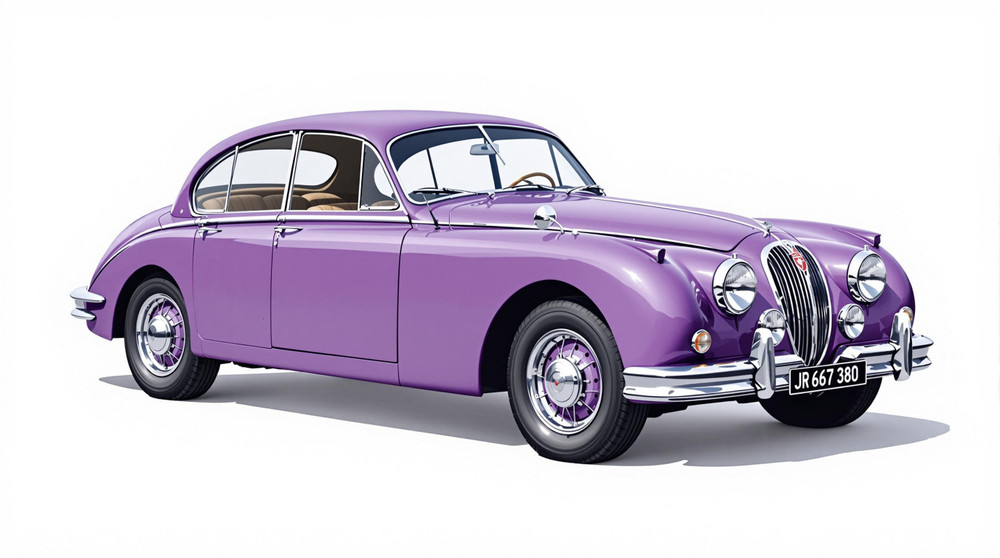Image of 1960 Jaguar 3.8, Note: These illustrations use artistic license and may differ from actual historical models.
Performance Metrics
Fundamental Metrics
Emotional Appeal
MMP Rating
| Engine Specifications | |
|---|---|
| Engine: | 3.8L XK I6 |
| Displacement: | 3781 cc |
| Horsepower: | 220-265 hp |
| Torque: | 240-260 lb-ft |
| Compression Ratio: | 9.0:1 |
| Ignition System: | Lucas ignition system |
| Cooling System: | Liquid-cooled |
| Performance Specifications | |
| 0-60 Time: | 8.5 seconds |
| 1/4 Mile Time: | 16 seconds |
| Top Speed: | 125-135 mph |
| Transmission and Drive | |
| Drive Type: | Rear-wheel drive |
| Transmission Type: | 4-speed manual, 3-speed automatic |
| Fuel and Efficiency | |
| Fuel System Type: | Twin SU carburetors |
| MPG: | 15-20 mpg |
| Dimensions and Brakes | |
| Brakes: | Disc brakes |
| Wheelbase: | 107.5 inches |
| Weight: | 3100-3200 lbs |
Note: Specifications for classic cars are given to the best of our ability, considering the limited and variant data available.
1960 Jaguar 3.8: A Blend of Grace, Pace, and Space
The 1960 Jaguar 3.8 is not merely a car; it's a piece of automotive aristocracy that commands respect on the road. Born from the illustrious lineage of Jaguar Cars Ltd., this British masterpiece emerged as a symbol of luxury and performance. Its inception was during an era when cars were transitioning from mere transportation to symbols of status and style, and the Jaguar 3.8 led this charge with elegance.
A unique fact that sets the 1960 Jaguar 3.8 apart is its association with the iconic Mark II series, which became synonymous with 1960s British culture and was often spotted in high-speed chases in classic films and television series.
Design and Innovation
The exterior styling of the 1960 Jaguar 3.8 is nothing short of a visual symphony, with its seductive curves and elongated bonnet housing the powerful engine beneath. The vehicle's gracefulness is punctuated by a bold grille and emblematic round headlamps that have become a hallmark of classic Jaguars.
Inside, one would find an interior swathed in luxurious leather and rich wood veneers, reflecting the craftsmanship of its era. The quality of materials used spoke volumes about the car's premium positioning. Technological features such as four-wheel disc brakes were groundbreaking at the time, setting new standards in safety and performance.
Color options for the Jaguar ranged from opulent hues like Carmen Red to more subdued tones like British Racing Green, with the latter often being the color of choice for purists. The most iconic body style was undoubtedly the saloon, which offered both elegance and practicality.
Historical Significance
The 1960 Jaguar 3.8's impact on automotive design was profound; it introduced a level of luxury and performance that was previously unseen in its class. It set itself apart with its remarkable speed combined with an interior that rivaled those of far more expensive vehicles, cementing its place in history as a game-changer.
Performance and Handling
Performance-wise, the Jaguar 3.8 was no slouch; it boasted a top speed well over 120 mph and could sprint from 0-60 mph in under 9 seconds—a remarkable feat at the time. The car's handling characteristics were equally impressive, offering a smooth ride while still maintaining enough agility to tackle winding roads with poise.
Driving this Jaguar was an auditory delight; the engine's growl was music to any enthusiast's ears, while the tactile feedback through the steering wheel connected the driver to the road in an almost visceral manner.
Ownership Experience
The 1960 Jaguar 3.8 found its niche among various owners—from being a daily driver for some to gracing car shows or even participating in historic racing events for others. Maintenance could be challenging due to its age and sophistication but finding parts has been made easier thanks to a dedicated community of enthusiasts and specialists.
Fun Facts
This model has seen its share of limelight with celebrity ownerships including famous names like Steve McQueen. While not known for breaking speed records, it did set benchmarks for luxury sports sedans. Criticisms often revolved around reliability issues common in many classic cars.
Collector's Information
Today, a well-maintained 1960 Jaguar 3.8 can fetch anywhere between $40,000 to over $100,000 depending on condition and provenance. Production numbers were limited but exact figures are hard to pinpoint—adding to its allure among collectors. The market trend shows appreciation in value as these vehicles become rarer over time.
Conclusion
The legacy of the 1960 Jaguar 3.8 is enduring; it remains an embodiment of British motoring excellence that continues to captivate classic car aficionados worldwide. Its blend of aesthetic beauty, groundbreaking technology, and thrilling performance ensures that it will remain a prized possession for generations to come.
1960 Jaguar 3.8 Catalog of Parts
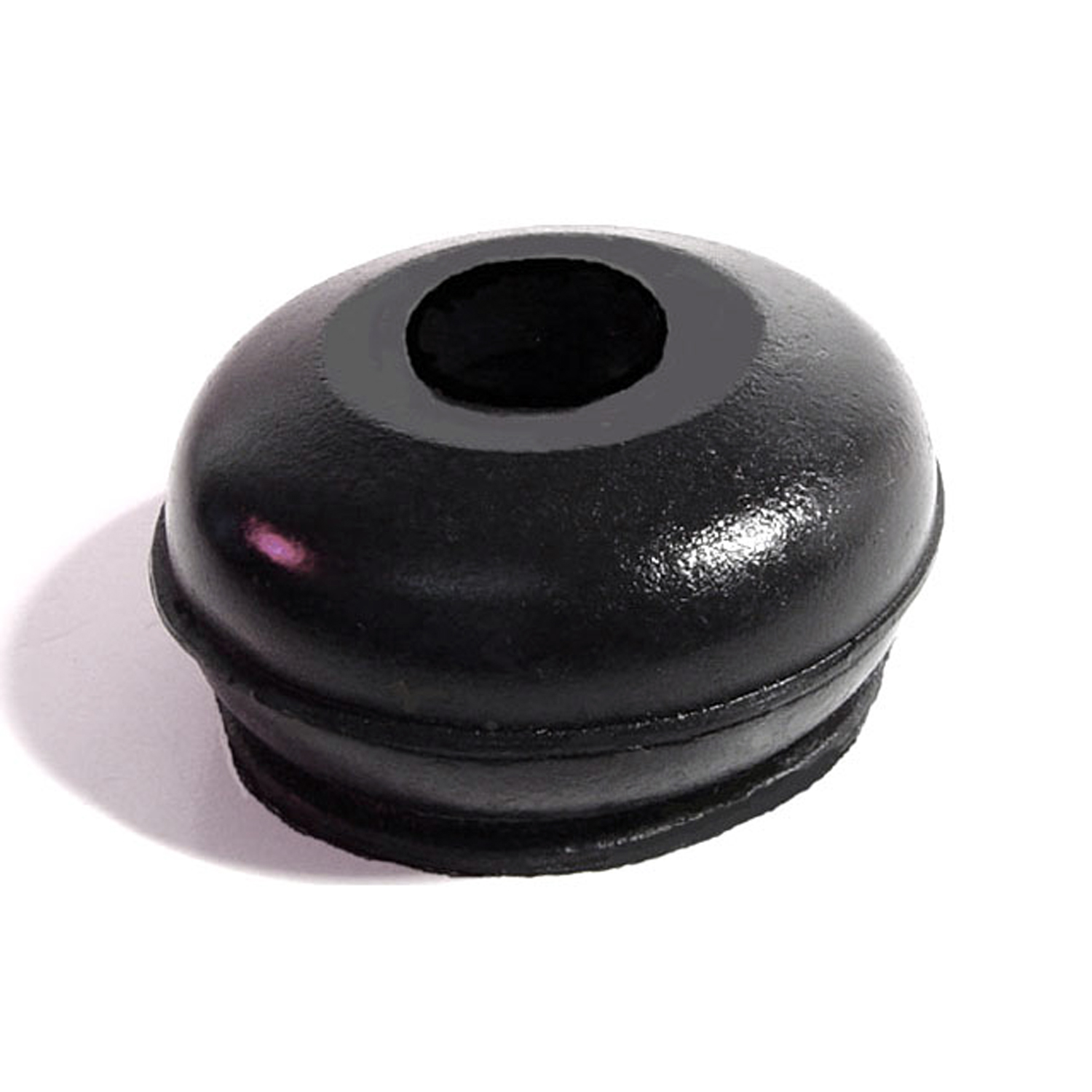 1960 Jaguar 3.8 Upper and Lower Ball Joint Boot. 5/8" upper I.D-BN 101-AUpper and Lower Ball Joint Boot. 5/8" upper I.D., 1-1/2" bottom I.D., 7/8" high. Each
1960 Jaguar 3.8 Upper and Lower Ball Joint Boot. 5/8" upper I.D-BN 101-AUpper and Lower Ball Joint Boot. 5/8" upper I.D., 1-1/2" bottom I.D., 7/8" high. Each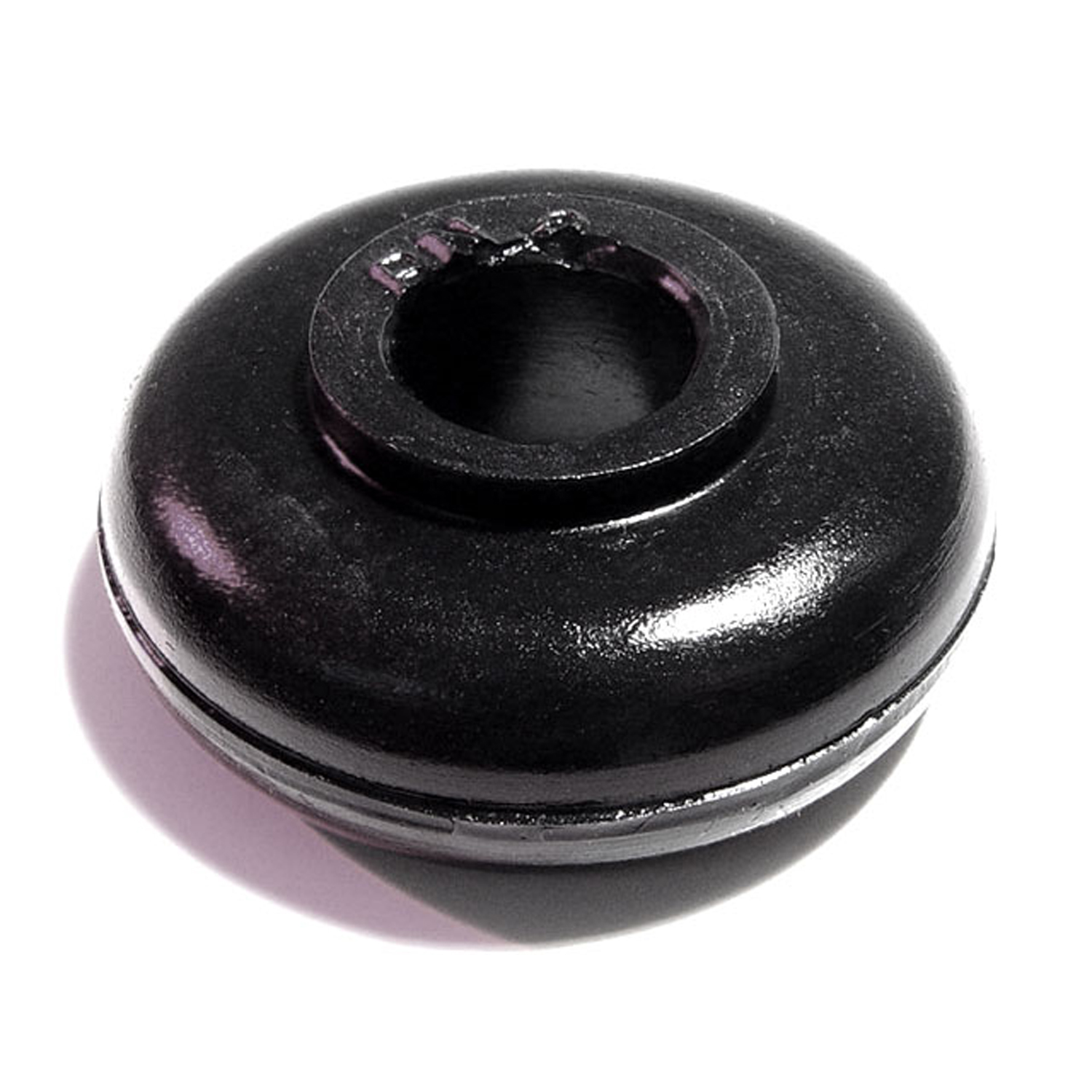 1960 Jaguar 3.8 Roll Bar Bushing. 1/2" high, with 1/2" hole. Each-BN 2Roll Bar Bushing. 1/2" high, with 1/2" hole. Each
1960 Jaguar 3.8 Roll Bar Bushing. 1/2" high, with 1/2" hole. Each-BN 2Roll Bar Bushing. 1/2" high, with 1/2" hole. Each 1960 Jaguar 3.8 Auto Brake Pedal Pad. 3-1/4" wide X 5-1/2" long. Each-CB 75-BAuto Brake Pedal Pad. 3-1/4" wide X 5-1/2" long. Each
1960 Jaguar 3.8 Auto Brake Pedal Pad. 3-1/4" wide X 5-1/2" long. Each-CB 75-BAuto Brake Pedal Pad. 3-1/4" wide X 5-1/2" long. Each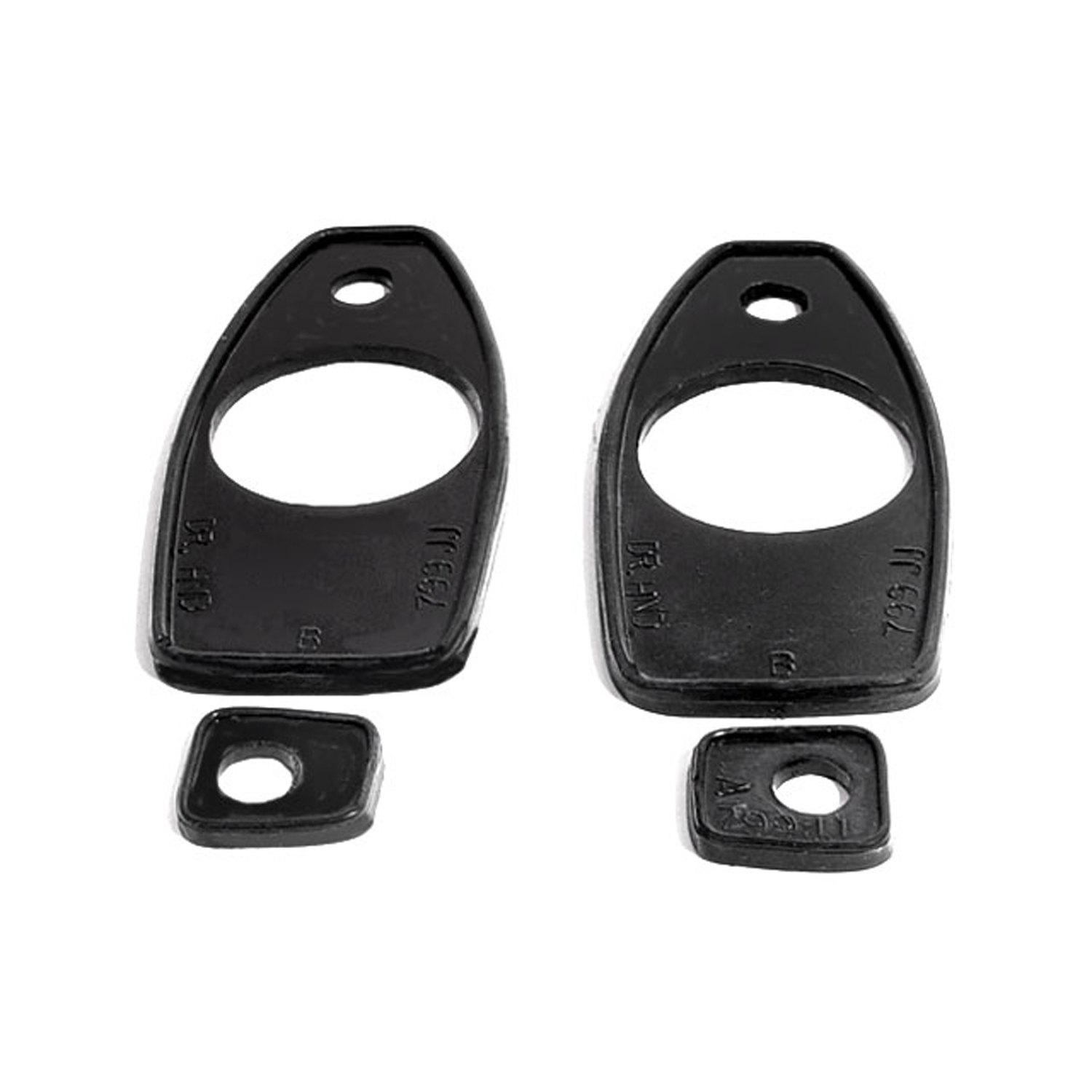 1960 Jaguar 3.8 Door Handle Pads. 1-1/8" wide X 2-5/8" long. 4-Piece Set-MP 799-JJDoor Handle Pads. 1-1/8" wide X 2-5/8" long. 4-Piece Set
1960 Jaguar 3.8 Door Handle Pads. 1-1/8" wide X 2-5/8" long. 4-Piece Set-MP 799-JJDoor Handle Pads. 1-1/8" wide X 2-5/8" long. 4-Piece Set 1960 Jaguar 3.8 Spark plug wire boot. Exclusive Metro part-RP 1-KSpark plug wire boot. Exclusive Metro part. Fits on the distributor cap end. Note: looks similar to coil boot, but is physically smaller. Replaces OEM# CO 2609. Each.
1960 Jaguar 3.8 Spark plug wire boot. Exclusive Metro part-RP 1-KSpark plug wire boot. Exclusive Metro part. Fits on the distributor cap end. Note: looks similar to coil boot, but is physically smaller. Replaces OEM# CO 2609. Each.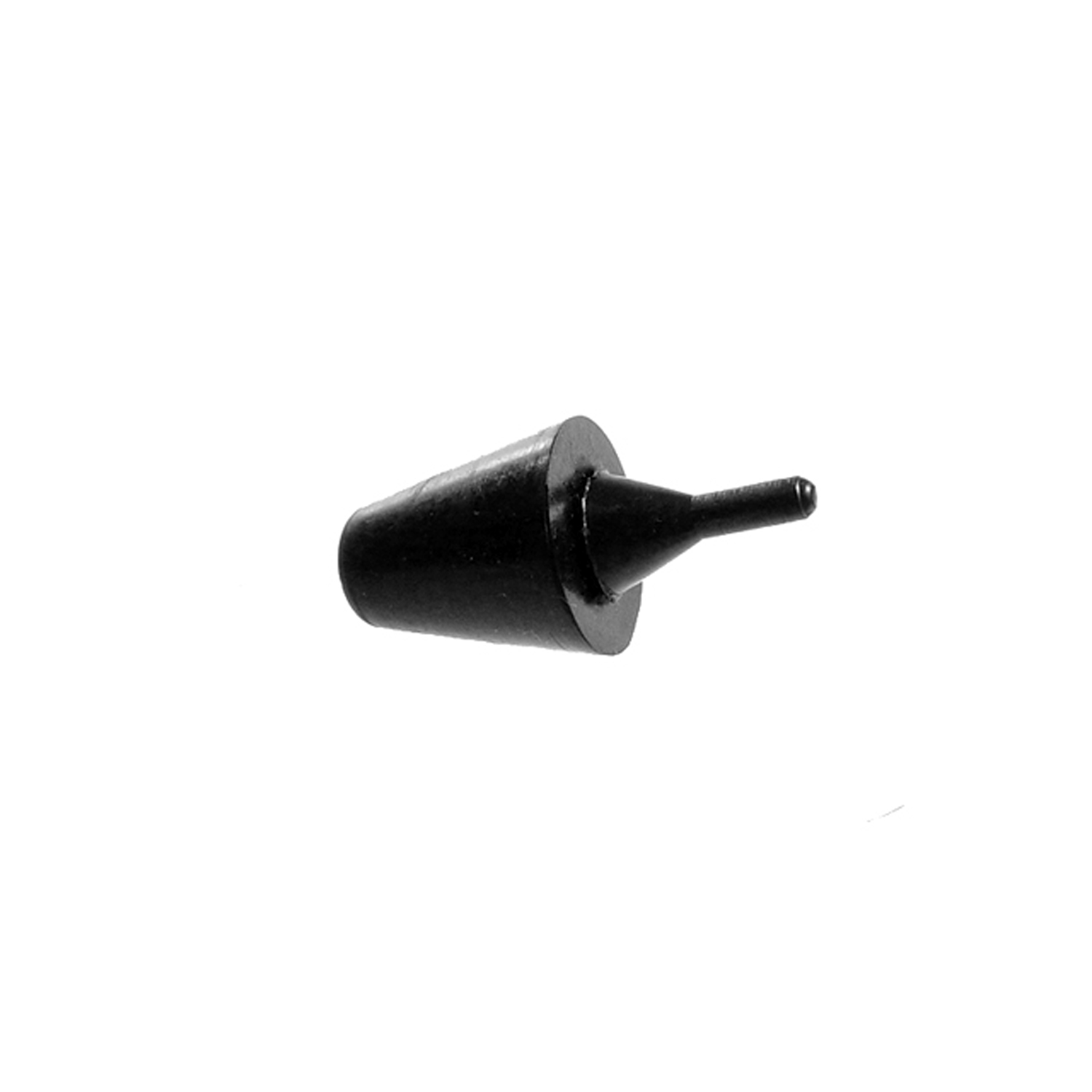 1960 Jaguar 3.8 Hood Bumper. For rear of hood buffer. Each-SB 111Hood Bumper. For rear of hood buffer. Each
1960 Jaguar 3.8 Hood Bumper. For rear of hood buffer. Each-SB 111Hood Bumper. For rear of hood buffer. Each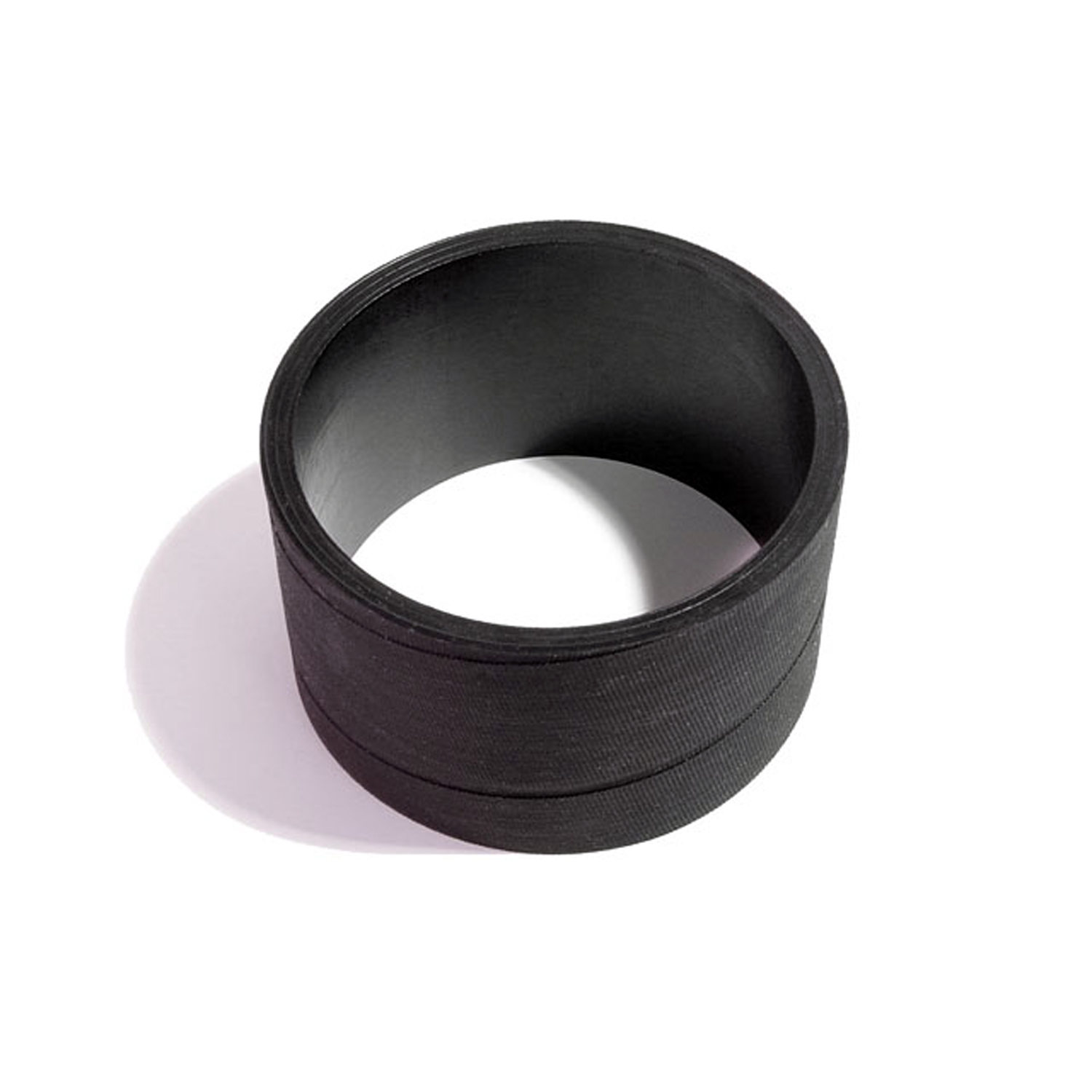 1960 Jaguar 3.8 Air Cleaner to Intake Manifold Sleeve. Hard rubber-VH 102-EAir Cleaner to Intake Manifold Sleeve. Hard rubber. 4-5/8" ID, 4-7/8" OD, 2" High. Each.
1960 Jaguar 3.8 Air Cleaner to Intake Manifold Sleeve. Hard rubber-VH 102-EAir Cleaner to Intake Manifold Sleeve. Hard rubber. 4-5/8" ID, 4-7/8" OD, 2" High. Each.Why Choose Metro?
For over 100 years, Metro Moulded Parts has been the pinnacle of quality in classic car restoration parts. Our commitment to precision and authenticity in every component ensures a perfect fit and an OEM-level appearance.
- Expert Craftsmanship & Quality: Each part is a testament to our dedication to reliability and perfection, crafted from original designs and thoroughly tested.
- Advanced Technology: We use cutting-edge techniques to create flawless, long-lasting parts that surpass others in performance.
- SuperSoft Sponge – The Ultimate Door Seal: Not only are our door seals 30% softer than competitors', but they're also guaranteed to never leak. They effectively reduce wind and road noise, enhancing your classic car's comfort and driving experience.
- Proudly American: Our parts are a product of American craftsmanship, made in the USA with a spirit of excellence and heritage.
- Unrivaled Warranty: We back our products with a 30-year industry-leading warranty, a testament to our confidence in their quality.
Join us in preserving the legacy of classic cars with parts that are crafted for perfection, not just made.

